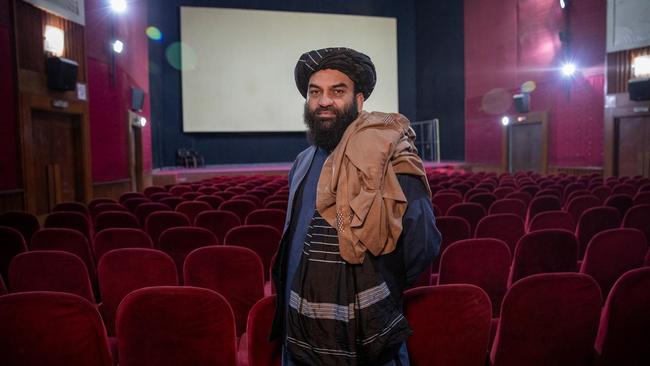Taliban reel in the nation’s film industry to sell their own story
The present regime appears to have realised the power of cinema as propaganda.

Afghanistan’s cinemas were closed and film reels burnt in public during the infamous repression of the 1990s. But the present Taliban government appears to have realised the power of cinema as propaganda, commandeering top positions in the industry and producing slick documentaries about the abuses of the West.
Since sweeping back to power in Kabul last year, the Taliban, who once condemned most forms of public entertainment, are still destroying media they consider unislamic. Yet instead of proscribing the state-run film company, founded in 1968, they seek to use it for their own ends.
“The Afghan Film Organisation is the only governmental entity that has the ability to show Afghan culture to the world,” Jawad Afghan, 29, said of the company he now leads.
“The (Taliban’s) change in attitude is because the international community shared fake news, so the Islamic Emirate began documenting events through video to show who the real human rights defenders are.”
Countering the country’s image as reported by western media is at the core of conversations with the Taliban, who still seek international and diplomatic recognition for their regime. Until the group’s takeover last year, the film organisation was led by a woman: Sahraa Karimi, a prolific director with a doctorate in cinema. By contrast, Mr Afghan’s background is within the culture ministry. But the power of film is not lost on him, and he has directed a documentary about the US treatment of Afghan detainees. Mr Afghan said he hoped to attract global viewers for his work. But the Taliban continue to ban foreign films. Modern Afghan filmmakers whose work is critical of the Taliban also fear reprisals.
However, in August a week-long independent Afghan film festival was held in Kabul. Although the topics were restricted, the best film award was given to the only female entrant, Atefah Mohammadi, 20, with her seven-minute short humanising drug addicts.
“The Islamic Emirate is not trying to eliminate the film industry,” declared Qari Wali Gul Jawad, 38, head of cultural affairs for the Kabul Municipality.
It is clear, however, that a shift is under way, with the big screen set to become mostly a vehicle for Taliban propaganda.
“Unfortunately, for the past 20 years things were being published and aired that were against our culture,” Mr Jawad added. “We are going to start again to rebuild our culture and values.”
The Times



To join the conversation, please log in. Don't have an account? Register
Join the conversation, you are commenting as Logout